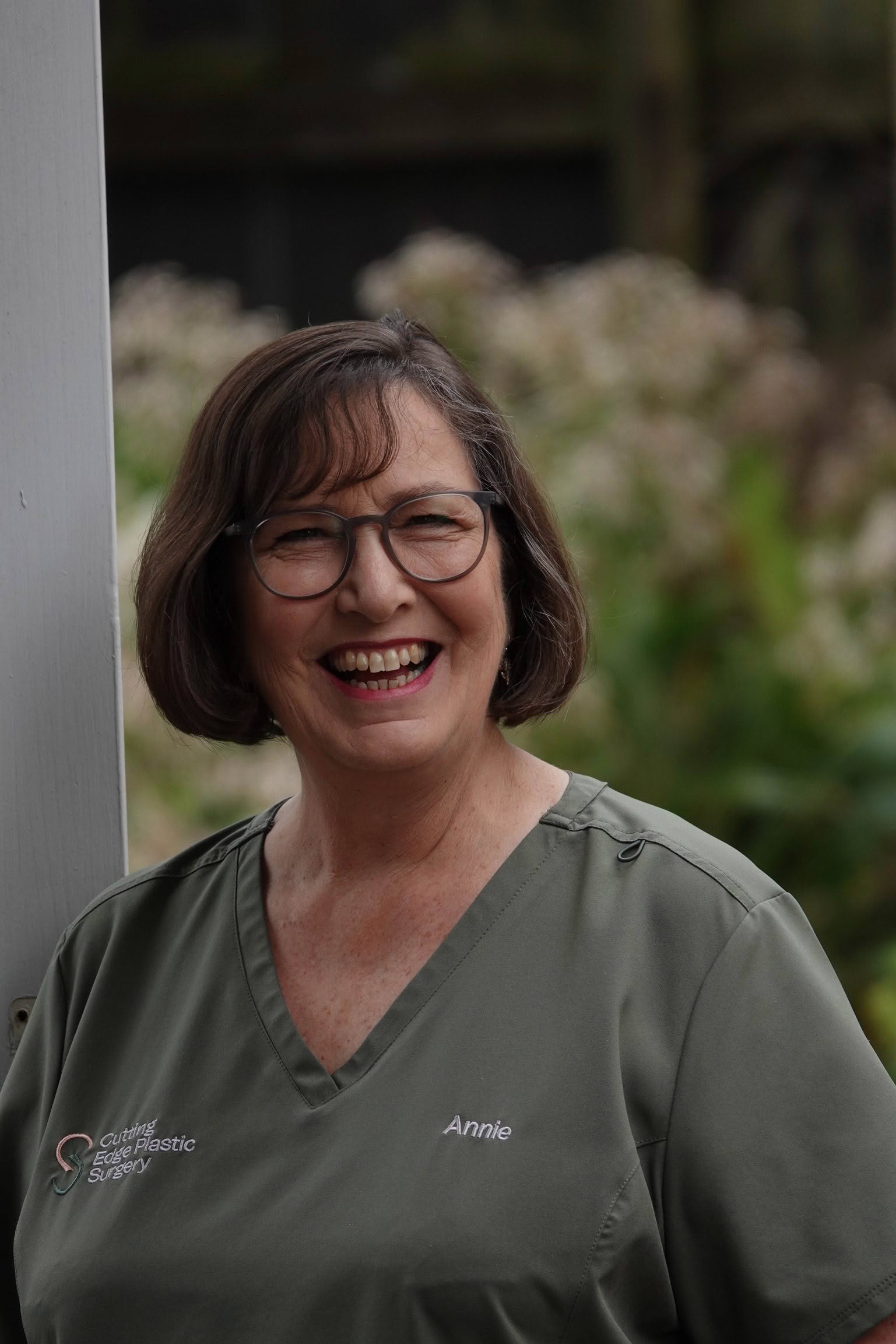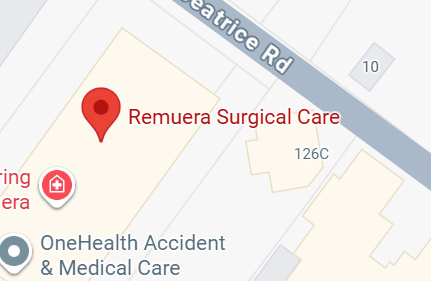Meet Annie
Annie is one of the specialist Plastic Surgery nurses at Cutting Edge Plastic Surgery – a role that gets her out of bed each morning eager to help patients, and passionate about the contribution she makes to the practice.
The spark of interest in nursing was lit by Annie’s Grandmother who was also a nurse. Inspired to follow in her footsteps but equally make her own way, she embarked on the career which she still loves to this day.
How do you start a career in this specialised area?
These days you need to complete a nursing degree but in Annie’s day you were “hands-on” from the start, completing hospital-based training that combined the theory and clinical practice until qualification. Regardless, Annie says it is important to get a good grounding in general surgery and medical nursing before considering any specialised training.
Annie’s path took her from general nursing to working in “Plastics” as it is known in the trade, caring for both adult and paediatric patients. She was drawn to the intricacy of the work and the “relationship you build with patients as you see them recover”. This experience exposed her to every aspect of this fascinating branch of surgery. “You could be caring for patients badly deformed after accidents or those having reconstruction for a congenital deformity” says Annie. It is a diverse area, and you need a special set of skills.
So, what skills do you need to succeed?
“The must have skill is having excellent attention to detail” says Annie. The intricate nature of the various treatments requires meticulous focus on wound management and aesthetics. You also need to be compassionate and empathetic as you support patients who are often dealing with big changes in their appearance. Helping the surgeon identify any problems to ensure the best outcome is also essential.
What about qualifications?
Following her experience on the Plastics unit Annie decided she wanted to formalise her knowledge with a qualification in surgical and burns nursing. With this under her belt she headed off to become a Charge Nurse with clinical and technical oversight of a Plastic Surgery unit. As Plastic Surgery is a multidisciplinary specialty, that may include aspects of oral maxillary surgery, dermatology, or ophthalmology, Annie says it is essential to get the right training and experience. This is what gave her the opportunity to take on future roles teaching and supporting others taking the same path.
So, what do Plastic Surgery Nurses actually do?
Well, that depends on the setting, as there are multiple (e.g. outpatient clinic, private rooms, or hospital) and Plastic Surgery nurses care for patients undergoing invasive and non-invasive surgical or aesthetic procedures. Annie explains that the main aim of Plastic Surgery is to restore the function and appearance of tissue and skin so it’s as close to normal as possible. This is different to cosmetic surgery, where the focus is on changing a person’s appearance to achieve what they feel is a more desirable look.
“You may do a mix of clinical work with minor surgery or larger procedures requiring general anaesthetic in a hospital operating theatre” she says. These may be as minor as a chemical peel or as complicated as paediatric facial reconstruction after a traumatic accident.
When Annie worked in a hospital setting, she says “No two days were the same. You could go from a day changing the dressings on one patient on a burns unit to conducting pre-operative checks on patients having surgery.”
The list of procedures a Plastic Surgery nurse deals with is vast…abdominoplasty, breast augmentation, craniomaxillofacial trauma reconstruction, liposuction, wound repair, skin cancer removal and microvascular reconstruction of the head and neck to name but a few!
And do they specialise within this area?
Yes, they do. Nurses in Plastic Surgery may work in specific areas such as Aesthetics (procedures to rejuvenate or correct defects or postpone aging), Burns (acute or reconstructive phase of burns and practices all aspects of burn care), Craniofacial (surgeries, including the face, jaw, and neck and Neuroplastic reconstruction (injury, deformity, tumours or trauma to the face or skull region).
What does a day at Cutting Edge Plastic Surgery look like?
Annie works as a specialist nurse and Dermoscopist. The day begins with a strict routine checking the rooms and equipment, assessing the patient list to plan their care, and getting the theatre room set-up for the minor surgery performed in the rooms (surgery requiring general anaesthetic is done in hospital).
Annie assists the surgeon during surgery and is a calm and reassuring presence for the patient throughout the procedure and post-operatively. The day may also include checking wounds and performing full body skin checks, with anything suspicious being referred to the plastic surgeon for review. Annie is also involved in the preparation of clinical policies and procedures for the practice, ensuring audit requirements are met and high clinical standards maintained.
It’s a role that allows Annie to use all her skills and knowledge gained via a long and varied career. Whilst she enjoyed the various senior management roles she worked in along the way, Annie says that her first love is hands-on nursing and “being able to make a tangible difference to a patient every day is so rewarding.”






